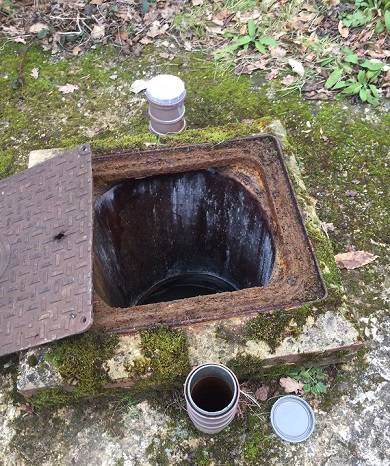What are Septic Tanks and How do They Work?
POSTED: November 07, 2019
We often take for granted standard sanitation methods in these modern times. However, society would quickly grind to a halt if they were not present. Septic tanks are rarely visible to the general public and as a result, their benefits go largely unnoticed. They are nonetheless absolutely critical in regards to proper waste disposal as well as preventing the spread of potentially serious diseases. Let’s take a quick look at their basic functions as well as some of the numerous benefits that they provide. How do septic tanks work? What are their important features? If you are curious to learn more, the information found immediately below should prove to be very interesting.
The Fundamental Principle Behind Septic Tanks
Although the uses of a septic tank can be traced back for hundreds of years, older models were relatively small and inefficient. These devices are generally located within areas that are not connected to a mains waste removal system (such as rural locations outside of major metropolitan regions). As opposed to the waste from a property being funnelled off into these systems, it is instead stored within a standalone septic tank. Now that we can appreciate when and where septic tanks may be used, it is wise to examine how they are able to treat waste.
How do Septic Tanks Work? An Ingenious Treatment Method
Mains sewer systems will often collect waste that needs to be chemically altered. Sewage treatment facilities accomplish this task through a number of complicated steps. However, this is not the case in regards to septic tanks. First, the waste generated from a property enters a tank via one or more outflow pipes. Two or more individual watertight tanks are the primary components of this system. These are then connected to additional receptacles that are perforated along their sides; allowing water to drain into the surrounding ground.
It should be mentioned that entirely natural methods are used to process the waste. The force of gravity separates heavier materials and these accumulate at the bottom of the tank. This substance is often referred to as sludge. Lighter waste products such as oil will naturally float to the top of the tank. This eventually forms a crust over the surface. The liquid in between these two layers (known as effluent) is then carried to the perforated receptacles mentioned in the previous paragraph. As we can see, these generally represent self-sustaining systems and they do not require much maintenance in order to function properly.
What are Some Installation Concerns?
Septic tanks are only efficient when they are placed within specific locations. Of course, there are guidelines involving how close they are to any surrounding structures. The level of groundwater must also be taken into account, as waste should never be allowed to enter into a local aquifer. The same holds true in regards to rivers, dams, man-made drainage solutions, and similar supplies of fresh water. This is why engineers and similar professionals will first assess the property in question before installing a septic tank.
Addressing Maintenance Issues
As stated previously, septic tanks are highly efficient systems. The subject of proper septic tank maintenance is nonetheless important to address. Property owners need to follow a few simple rules. The system should be examined at least once every year to determine the levels of sludge and solid waste. The efficiency of the tank and its ability to separate different substances from one another might otherwise become compromised. In other words, the drainage receptacles may become clogged and lead to a failure. This could result in a backup within the system and lead to foul odours emitting from household pipes. So, tanks should be “de-sludged” (pumped out) when required.
The amount of time between septic tank servicing will primarily depend upon usage. As a general rule of thumb, a tank associated with a two-person household needs to be pumped out every eight years. Homes with four residents require maintenance every four years. Properties with more than eight occupants (such as an apartment block) require more frequent assessments. Please keep in mind that smaller tanks will likewise require timely maintenance in order to avoid the situations highlighted earlier.
An Ounce of Prevention
It is clear to see that septic tanks play an important role in regards to the disposal of household waste. This is why appreciating how they function as well as a handful of maintenance suggestions should never be taken lightly. Do you suspect that your system may be encountering problems or does it need to be pumped out? If so, please speak with a representative from Below Ground Solutions. We are more than happy to schedule an appointment or to further discuss your treatment options.

